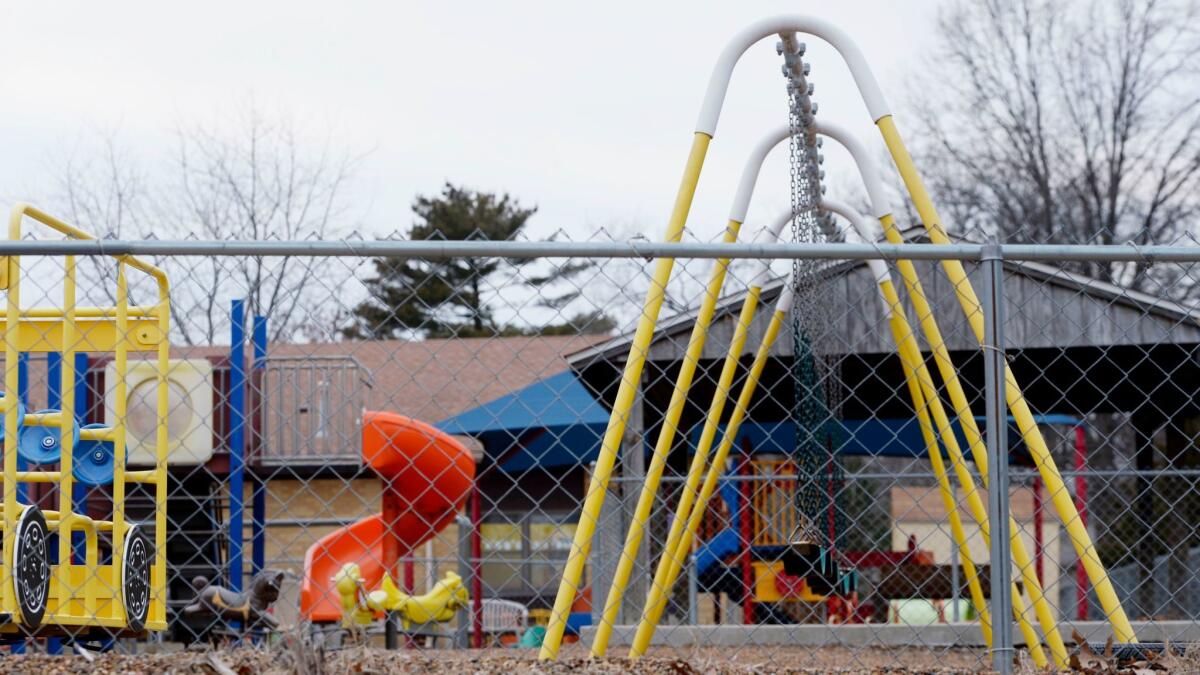Editorial: ‘Freedom of religion’ collides with ‘freedom from religion’ on a Missouri playground

Religious freedom in the American context has two meanings. One is that government will not promote religion or, as the 1st Amendment puts it, that there will be “no law respecting an establishment of religion.”
But the 1st Amendment also protects the “free exercise” of religion. That means citizens can’t be penalized for practicing their faith, including, the Supreme Court has ruled, when it comes to the allocation of government benefits.
On Wednesday the court struggled with a case originating on a preschool playground in which those two definitions of religious freedom seemed to pull in different directions.
If the court rules for the church, it needs to do so narrowly.
Trinity Lutheran Church in Columbia, Mo., operates the Learning Center, a day-care and preschool program. It applied for a state program that uses recycled tires to rubberize the surface of children’s playgrounds. But the church’s grant application was rejected by the state Department of Natural Resources because of a provision in Missouri’s constitution, similar to that in some other states, that forbids the expenditure of state funds “in aid of any church, sect or denomination of religion.” Nonreligious nonprofit organizations, however, were eligible for the grants.
According to the church’s lawyer, Missouri excluded the Learning Center from a program that provides a safer playground for children “solely because the preschool is operated by a church rather than a secular not-for-profit.” That, he told the court, amounted to “admitted discrimination against religion” in violation of the 1st Amendment’s free exercise clause.
The church received a sympathetic hearing from several justices across the ideological spectrum. Justice Elena Kagan called Missouri’s refusal to consider the church’s application “a clear burden on a constitutional right.” Justice Stephen Breyer asked the lawyer for Missouri whether, if a state could withhold grants from a church for playground safety, it could also deny churches police and fire protection — suggesting that the answer was no.
But if the court rules for the church, it needs to do so narrowly. One way to do that would be to construe Missouri’s ban on the use of state funds “in aid of any church, sect or denomination of religion” to apply to worship and religious instruction but not to secular services like police and fire protection — or the upgrading of playgrounds.
A ruling limited to the facts of this case would be an exercise in judicial modesty. It also would reassure those who have worried that a victory for the church in this case would make it easier to adopt a program of vouchers for religious schools in states with constitutional provisions such as Missouri’s.
We share that concern. This page has opposed private-school vouchers for religious and non-religious schools alike because they siphon resources from public schools that are required to educate all children. The best way to avoid constitutional questions about vouchers is not to introduce such programs in the first place.
Follow the Opinion section on Twitter @latimesopinionand Facebook
More to Read
A cure for the common opinion
Get thought-provoking perspectives with our weekly newsletter.
You may occasionally receive promotional content from the Los Angeles Times.










